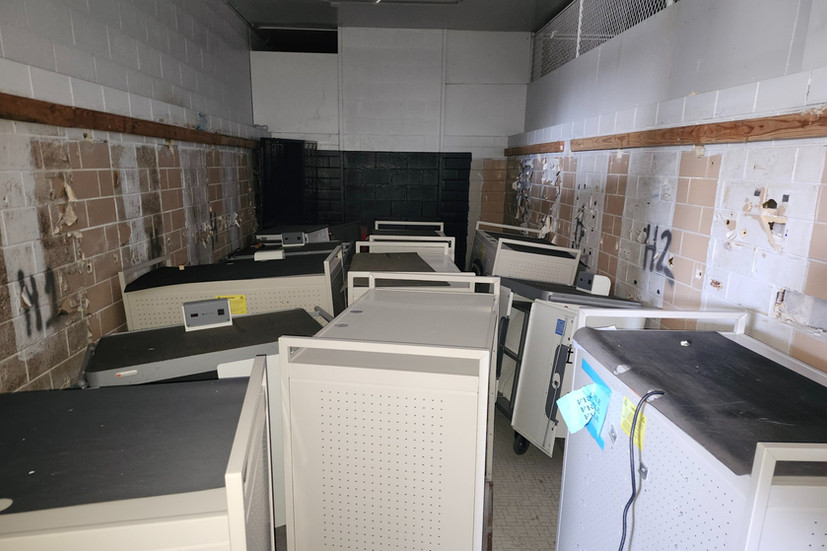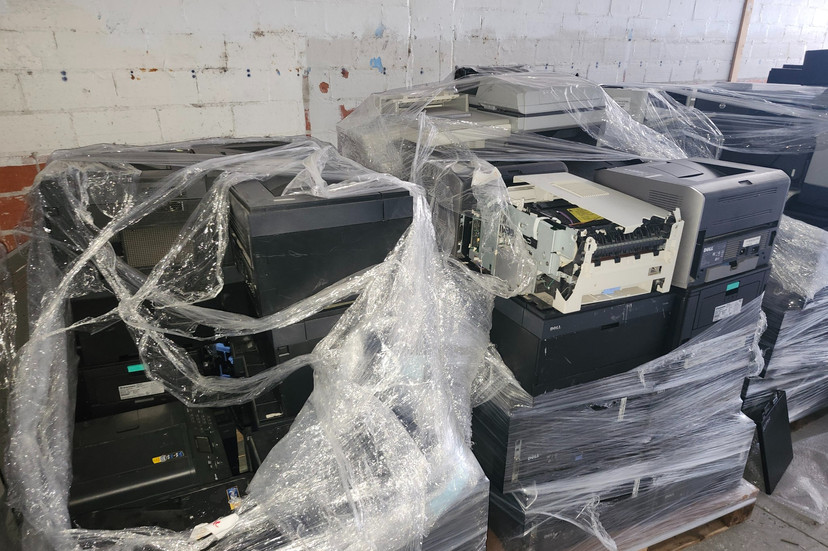Leading the Way in Sustainable Demolition
- Rikki Yanez

- Apr 1, 2025
- 2 min read

When you think of demolition, you might think of the dismantling of structures and destruction rather than an opportunity for sustainable practices. However, this is a common misconception. Demolition can be conducted in an environmentally responsible manner. Demolition professionals happen to play a crucial role in preservation by removing hazardous materials and facilitating energy-efficient upgrades, according to the National Demolition Association. JR RAMON Demolition, a San Antonio based company, puts sustainability at the forefront of every one of their projects.
One of the ways JR RAMON Demolition practices sustainability is by operating its own yard, which is dedicated to concrete separation, crushing, and cleaning, where concrete rubble is repurposed into high-quality aggregate. They resell the high-quality aggregate materials for use in commercial buildings, bridges, and roads, helping to conserve resources, reduce energy consumption, and minimize landfill waste. According to the Construction & Demolition Recycling Association, about 140 million tons of concrete are recycled into usable aggregate each year.

The company currently has a crew at the San Antonio International Airport for an ongoing project that consists of demolishing concrete. The crew began removing concrete for the airport’s new terminal in October 2024. By March 2025, they had recycled around 34,125 tons of concrete from the Terminal C Development Program Enabling Package. The concrete from this project has been repurposed into aggregate for construction projects across the San Antonio region.
In addition to the company’s eco-friendly practices, JR RAMON frequently collaborates with general contractors participating in the Leadership in Energy and Environmental Design (LEED) program. To achieve LEED certification, projects must meet specific requirements and earn points based on factors such as carbon reduction, energy efficiency, water conservation, waste management, sustainable materials, transportation, health, and indoor environmental quality. Depending on the project's certification level—Silver, Gold, Platinum, Certified—contractors are required to recycle a designated percentage of materials. JR RAMON consistently recycles over 85% of materials across all their projects. The company also prioritizes the safe removal of hazardous materials such as asbestos, lead, chromium, mercury, and PCBs.
In another project in Corpus Christi, Eric Snow, Project Manager at JR RAMON Demolition, reported the recycling of plastics and electronics from a school that had been vacant for approximately two years. Snow shared, “Initially, the plan was to destroy and dispose of all items as part of the bid. However, after a thorough examination, it was determined that some items were salvageable, and other disposal methods were considered.” The team collaborated with local recycling centers to recycle 100 printers, 150 keyboards, CPUs and computer monitors, along with 15 pallets of dividers intended for use during the COVID-19 pandemic. Once demolition commences, the crew will also recycle many of the building materials, such as metals, concrete and some electrical and mechanical units.
Each project is carried out with a dedication to quality, performance, and environmental responsibility. General Superintendent Cesar Avilla states, “We take precautions on every project. Our priority is to avoid environmental harm.” Whether its site clearing or demolishing a structure to make way for future development, integrating sustainable demolition practices is essential for a greener, more responsible construction industry.











